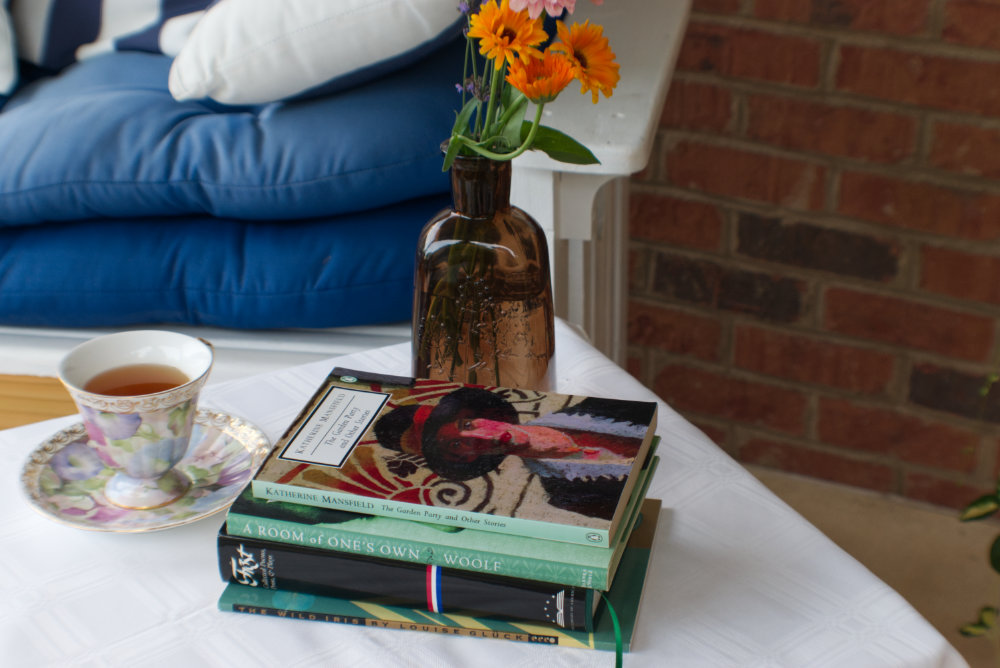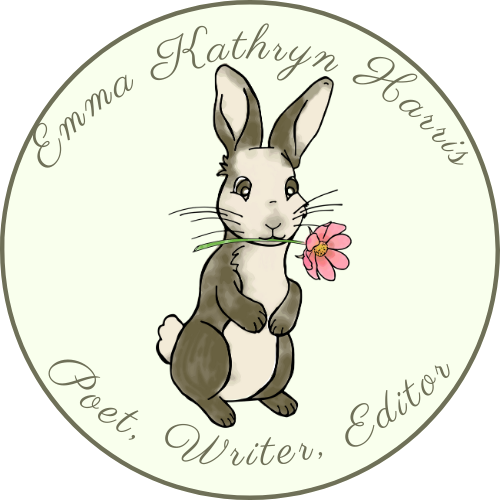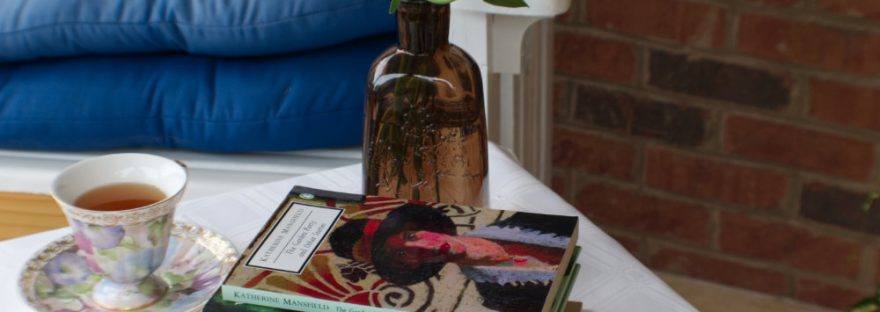Beauty breeds beauty, truth triggers truth. The cure for writer’s block is therefore to read.
Matt Haig, author, journalist, “The Humans”
We all experience days, weeks even, where we’re feeling a bit uncreative. We face that blank screen or page, and it is as if the blankness mocks us. The longer we hesitate, it knows.
What it does not understand is what we encounter daily — stress, impending deadlines, and a plethora of challenges only we can understand. And when we are stressed, it is difficult to write because stress creates clouds and darkness and near sightedness. I get it.
As professional writers, we cannot use the “writer’s block” excuse knowing by experience it does not exist except when we create it as an excuse to not write. We write, pen words amidst the mind’s disorganized junk, and hope we can make sense of the words later when we edit. Writing helps us, at least, to plow our way through life, and sometimes we create something beautiful simply because we wrote despite our anguish.
But on the days we truly are suffering creatively, what can we do to refocus? Where can we find inspiration to get our fingers moving?
Reading is a great place to start.
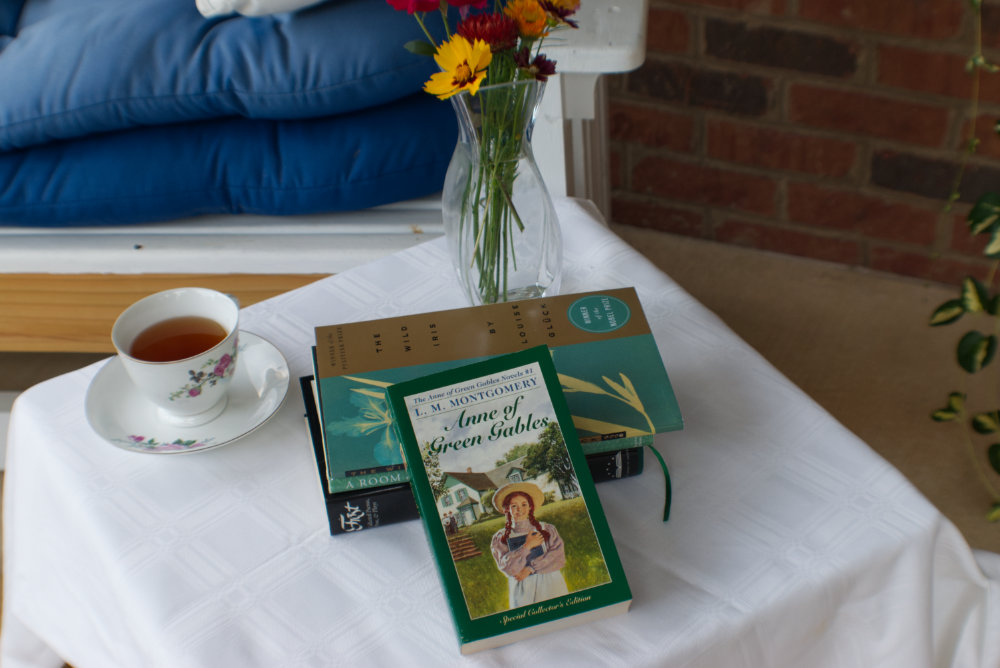
“Anne of Green Gables,” L.M. Montgomery 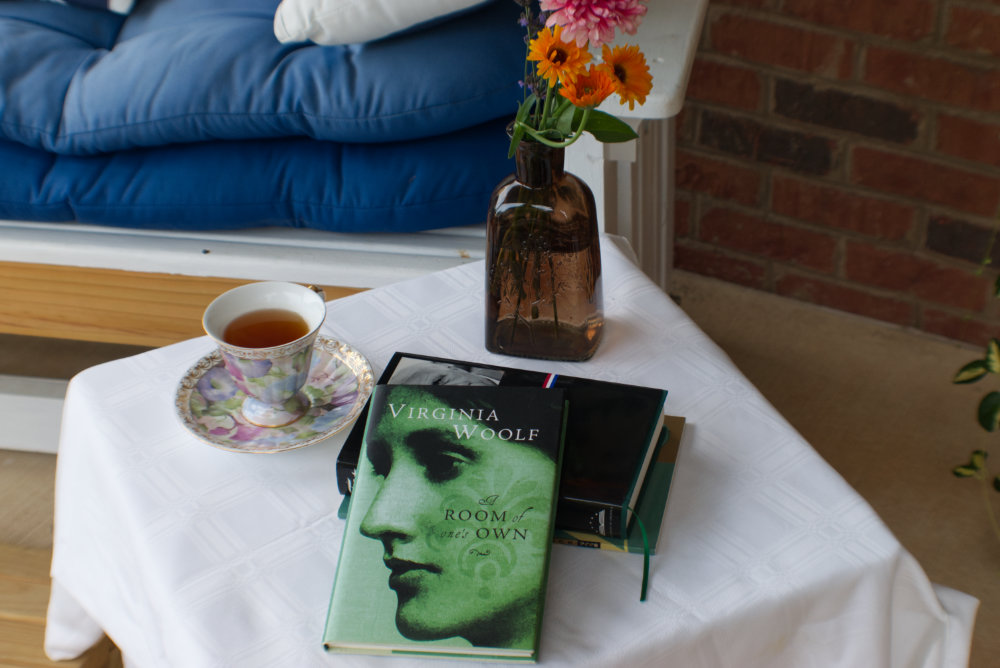
“A Room of One’s Own,” Virginia Woolf
Feed your creative mind by reading
Reading books by other authors, whether they are nonfiction, fiction, or poetry, creates images in our mind. We begin to see things the way we perceive them. We might follow a path the author is leading us, but we picture the faces, colors, and environments in the way we envision them. Since we are not “one” with the author’s mind, this is how our brain operates.
What we see with our eyes when we read translates into our brain from our own point of view.
I read a lot of books (a lot!). Most of us writers are voracious readers. And collecting insights from other writers through their books can spark creativity in a way we did not expect.
For example, I can read a poem and see one word or phrase that kindles an idea. Suddenly I am writing my own poem, or essay, based on that one word. Or I might read an article or a nonfiction book related to business and this, too, can ignite an outline for a story. My brain juggles information the way it wants to, so I run with it.
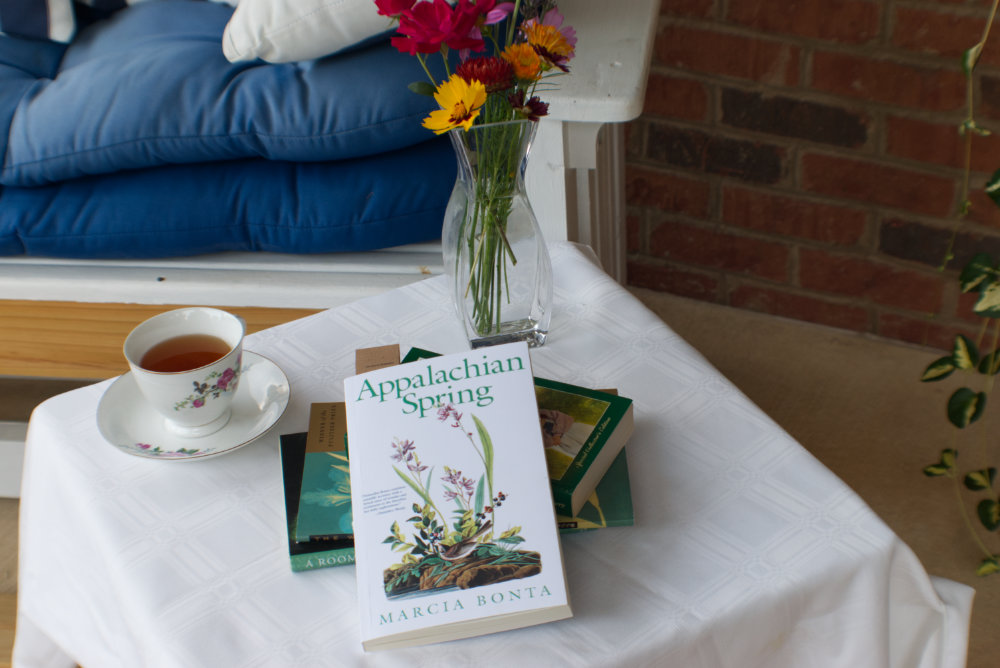
“Appalachian Spring,” Marcia Bonta 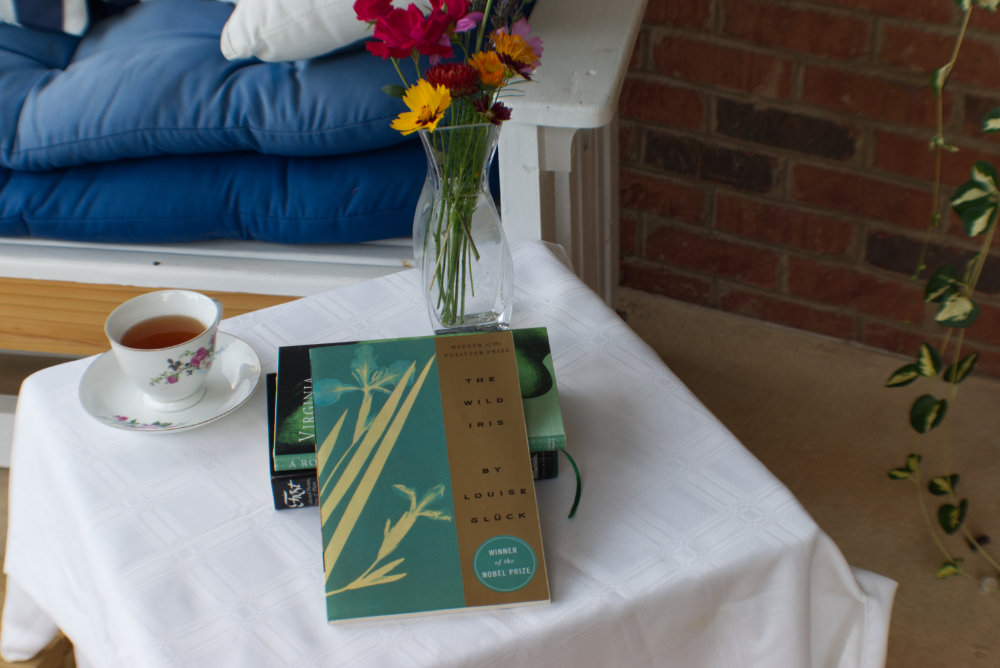
“The Wild Iris,” Louise Gluck
I am reading several books at once — four poetry books, three books of essays, two educational books (one on writing poetry, the other on editing), and a novel. This helps to jumpstart my writing projects when I feel a bit stuck. As I read these books, I highlight words, phrases, and ideas to return to later because they cause me to think of something worth writing.
Reading helps us use our imagination. The book on the craft of writing poetry I am currently reading is forcing me to take what I am learning to reevaluate and shape poetic phrases differently. Already I can see the change in my poetry and I hope this will help as I write more, edit them, and then pitch them to literary magazines. Time will tell.
An added bonus: take your book outside and read in the natural world. As I have written before, creation is an excellent environment for writing prompts. But it is also calming and peaceful, which we all need!
“Read, read, read. Read everything — trash, classics, good and bad, and see how they do it. Just like a carpenter who works as an apprentice and studies the master. Read! You’ll absorb it. Then write. If it’s good, you’ll find out. If it’s not, throw it out of the window.”
William Faulkner
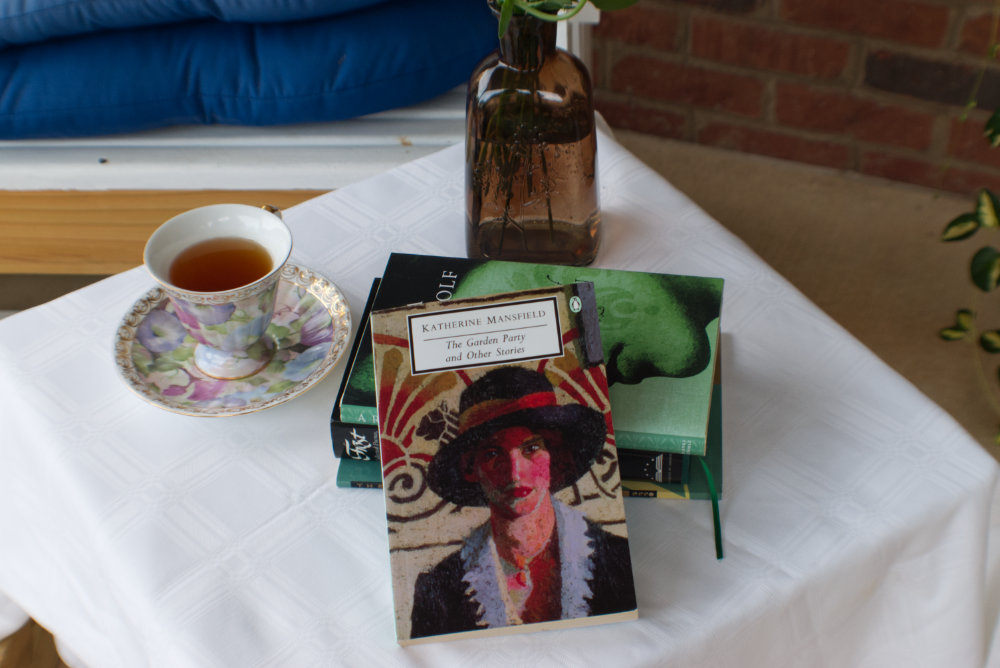
“The Garden Party and Other Stories,” Katherine Mansfield 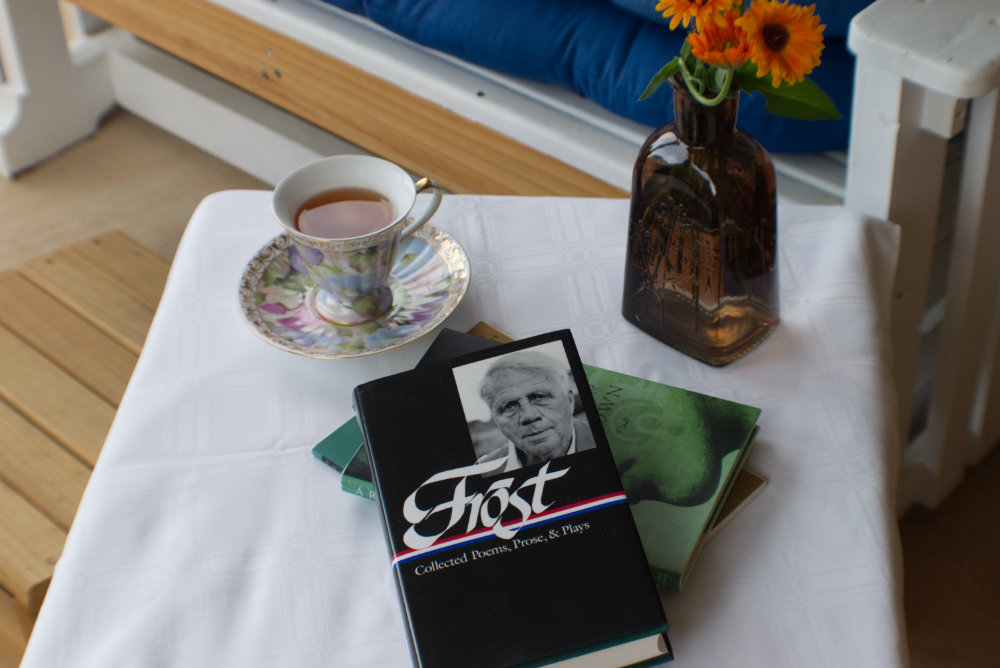
“Collected Poems, Prose and Plays,” Robert Frost
Movies can catapult our imagination
Our instinct as writers, naturally, is to read books. But I think you will agree there are some well-written movie scripts that deserve our attention. I enjoy a movie with a good script, a persuasive dialogue, and an engaging story. And sometimes I hear a line I must write down because it is that good.
When we watch movies, are brains are even more active because a lot is happening on the screen and we are trying to absorb it. Just as reading a book engages our creativity, watching movies can do the same.
Likely, as writers, we have the habit of not just watching a scene, but listening to the writing and seeing how it ties into the image. Movies can also teach us a lot about dialogue, vision, and composing an intriguing story.
As well, watching a movie that we enjoy and we find uplifting, can also help us de-stress.
